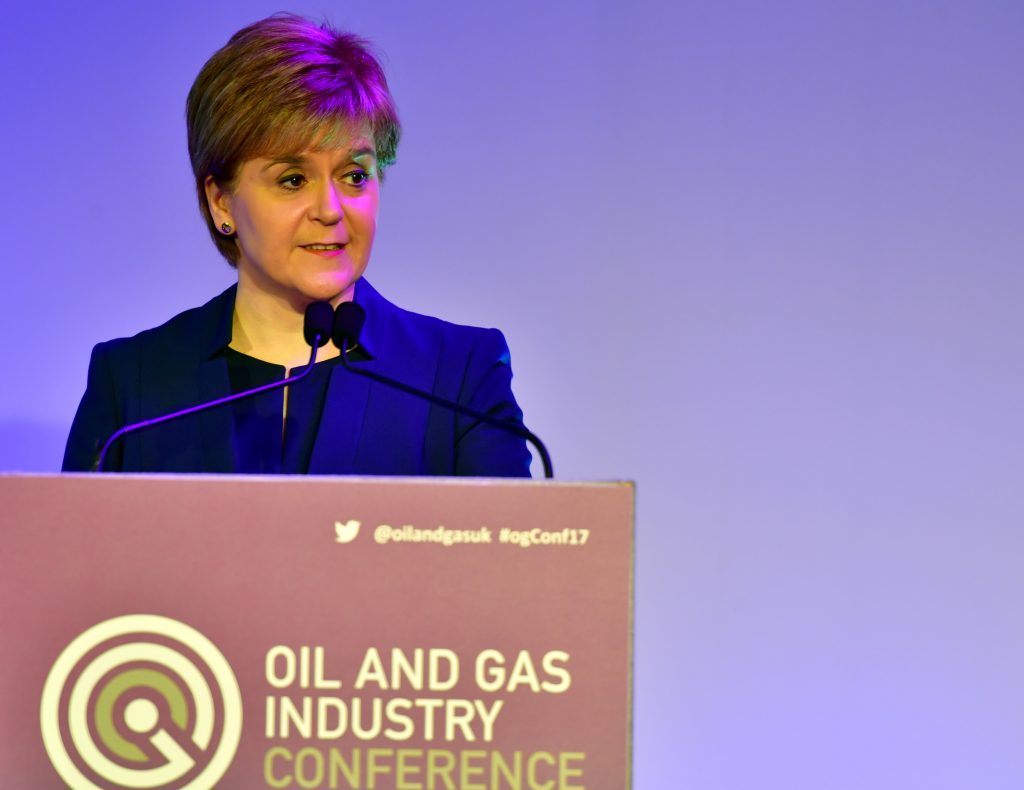
Nicola Sturgeon has said the UK Government’s refusal to publish its breakdown of Brexit’s impact on Scotland is “unconscionable”.
She said the public had a right to know how leaving the EU would affect all areas of the UK, and accused Downing Street of a “lack of willingness” to share information.
Speaking at a meeting of Holyrood’s Conveners’ Group, Ms Sturgeon said: “We saw reports yesterday estimating the loss of economic output in Scotland could be £30 billion.
“I certainly would like to see more transparency around this from the UK Government there are suggestions that the UK Government has sector specific analysis of the impact of Brexit.
“There’s a suggestion that it has an analysis looking particularly at Scotland as whole but thus far there’s been a refusal to publish those analyses.
“I think that’s unconscionable. I think the public have a right to know.”
Brexit Secretary David Davis told MPs at the Brexit Select Committee the House of Commons had decided not to publish anything that would “undermine national interest” and to release industry-specific information is the equivalent of “giving a price list to the other side”.
He confirmed the Scottish impact analysis would be shared with the Scottish Government.
Ms Sturgeon told MSPs: “It might not be in the interest of the UK Government to publish these, it’s certainly in the national interest to publish them.
“There is lack of willingness to share information and to allow the Scottish Government, or indeed the other devolved administrations, to properly influence this work.
“I just don’t think that is acceptable, either from the point of view… about respect for devolution or from the interest of actually getting the best possible outcomes to these discussions.”
Further subjects covered in the wide-ranging meeting, which gives the conveners of all Holyrood’s committees the chance to question the First Minister, included the feasibility studies for a universal income announced in the programme for government.
Ms Sturgeon said Fife, North Ayrshire, Glasgow and Edinburgh councils are working on pilot schemes for a citizen’s income – which commonly gives a regular, unconditional payment to all citizens – and research for this would be supported by two years of government funding.
Recommended for you
